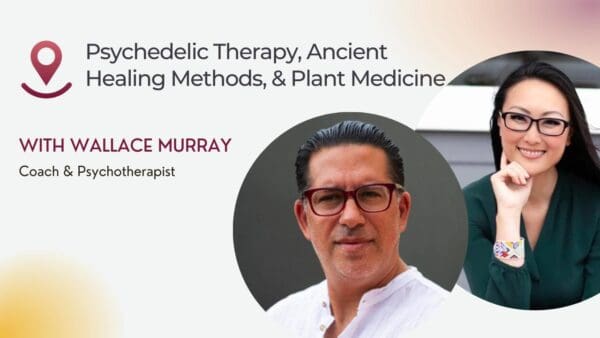Medical Editor: Hilary Morris, MA, LPC
Sexuality, much like psychedelics, has long been unfairly judged, regulated, and persecuted. As more science emerges on these medicines’ healing potential, society is finally talking about sexual fluidity, gender, and trauma. Unfortunately, sexual assault is extremely prevalent. According to RAINN, 433,648 Americans aged 12 and older are sexually assaulted this year. Such an experience can lead to post-traumatic stress disorder (PTSD), disrupted sexual and romantic relationships, and feelings of distrust and inadequacy. Psychedelics may play a crucial role in healing from sexual trauma. Keep reading to learn about how sexual trauma plays out and how psychedelics can help.
Sexuality
Sexual development involves the maturation and expression of pleasure, procreation, creativity, and sexual expression. One study introduces the concept of “sexual fluidity” to describe sexual development and changes over time. Rather than being a fixed concept, sexuality changes and is malleable. Sometimes sexual behaviors or preferences are pathologized based on religious, political, or societal beliefs.
Psychedelics and sexuality
Psychedelics help deepen the understanding of one’s sexuality. They can reveal how sexual identity was formed and how sexuality was wounded or suppressed (for example, sexual trauma). Additionally, psychedelic use increases awareness of sources of pleasure and helps understand how societal messaging impacted sexual development. Individuals learn to disconnect from previously learned behaviors around sexuality and step into their unique sexual expression. Finally, psychedelics can enhance sexual pleasure in partnership, given both parties are in consent.
Psychedelic therapy to heal sexual trauma
According to RAINN, 30% of women report symptoms of PTSD after a rape. Psychedelic therapy, specifically research conducted with 4-Methylenedioxy-methamphetamine (MDMA), has been used in the treatment of post-traumatic stress disorder (PTSD). MDMA is currently in Phase 3 trials and expected to gain FDA approval for PTSD by 2023.
Another method of trauma resolution focuses on reprocessing traumatic memories using either cognitive behavioral therapy or eye movement desensitization reprocessing (EMDR). In some cases, it is difficult to differentiate between a repressed memory, a confused memory, or a “pseudo memory,” according to the American Psychological Association. Memories that were previously forgotten arise during trauma therapy. Some memories are misconstrued and misunderstood based on the developing childhood brain and the complex memory encoding process that happens in the temporal lobe and limbic centers.
For those using psychedelic therapy to assist in sexual trauma resolution, traumatic memories may be brought to the surface more rapidly and with more clarity than traditional therapies. The neurochemistry of psychedelics can bring up repressed memories to aid trauma processing without the traditional feelings of guilt, shame, panic, fear, and paranoia surrounding the memory. Clients then undergo trauma processing, desensitization, and somatic clearing of the traumatic experience. Embarrassment and shame around sexual trauma are met with love, compassion, and a sense of wholeness.
Lysergic Acid Diethylamide (LSD) has also been studied as a therapeutic agent to assist patients with end-of-life anxiety, depression, and alcoholism. Anecdotal reports have been surfacing around using LSD combined with psychotherapy to access repressed memories of sexual trauma. One sexual abuse survivor said he “could emotionally disconnect from the traumatic memories of the sexual abuse he has suffered from as a child.” Another woman has a revelatory insight on LSD and used the experience to reprocess her rape experience. She said, “ I still feel a sense of resolution and peace for giving my body parts the acknowledgment they needed and deserved.” Although some are using LSD for sexual trauma resolution, there is not enough research to make a definitive statement.
What is dissociation?
Certain instances of PTSD include dissociative responses. The Diagnostic and Statistical Manual of Mental Disorders (5th ed; DSM-5; American Psychiatric Association, 2013) described dissociation involving depersonalization (feeling detached from one’s body) and derealization (feeling like one is in a dreamlike state). People with PTSD following sexual abuse or rape experience often experience dissociative episodes and “leave” their bodies when the hyperarousal levels exceed a point their bodies can handle. This also happens during times of sexual intimacy, and their bodies may “freeze” or shut down, leading to feelings of shame and embarrassment in the bedroom. Emotional trauma also has a somatic, or body-based, component, which means parts of our bodies may hold pain, tightness, tension, constriction related to the traumatic experience. Evidence-based somatic therapies like EMDR can help treat PTSD and sexual trauma. Dissociation is a coping mechanism and actually aids individuals to be able to withstand their trauma in the event they are unable to escape the traumatic situation. In addition to fight or flight, sometimes people “freeze.” Many individuals describe dissociation as “floating” outside of their bodies. Speaking about sexual abuse, oftentimes women describe watching the abuse happen from the top corner of the ceiling in the room where the abuse was taking place.
PTSD treatment with sexual trauma also involves an understanding of dissociative episodes, precursors, and body-based sensations. Individuals learn to resist the urge to dissociate. Whenever the urge to dissociate arises, the individual learns to connect to their body (also known as “grounding” or “anchoring”). Common grounding techniques include feeling the sensation of one’s feet on the floor, dipping their hands in a cup of cold water, or placing their hand on their heart, chest, or womb. They slowly learn to minimize the frequency and duration of the dissociative response.
Can ketamine help?
Ketamine is a dissociative anesthetic that was approved in 2019 for treatment-resistant depression. Ketamine Assisted Psychotherapy (KAP) is a process involving psychotherapy while under the effects of ketamine with a trained psychotherapist present. KAP can help heal sexual trauma by disrupting the conditioned trauma responses and somatic presentations following sexual abuse. The ketamine experience provides a period where the parts of the body most impacted by the trauma can expand and find relief. It gives the body some “breathing room.” It allows clients to experience feeling safe in their bodies and provides a welcomed relief from a continued hypervigilant state.
While other psychedelics show promise in treating PTSD, particularly MDMA, there are several barriers to this method. In particular, MDMA and LSD are still Schedule I substances. They can be difficult to obtain in a safe, medically supervised environment. Ketamine remains the only legal psychedelic medicine at this time. It gained FDA approval in March 2019 in the form of the nasal spray Spravato (esketamine) for treatment-resistant depression. However, most of the research on ketamine comes from infusions or intravenous ketamine. This method also shows promise in treating PTSD, making it a valuable option for sexual assault and trauma survivors.
Ketamine is also much safer for people on antidepressants such as selective serotonin reuptake inhibitors (SSRIs), serotonin-norepinephrine reuptake inhibitors (SNRIs), and tricyclic antidepressants in conjunction with psychotherapy. These work by increasing the availability of serotonin and preventing the reuptake of serotonin and norepinephrine. MDMA also increases serotonin, which makes people taking other antidepressants susceptible to serotonin syndrome, a potentially dangerous condition in which the body produces too much serotonin. Because ketamine works differently, impacting glutamate transmission instead of serotonin or norepinephrine, it is safer to use in conjunction with other medications.
Closing thoughts
Sexuality is a beautiful expression of pleasure that can change over time. Wounded or repressed sexuality occurs from societal messaging and also instances of sexual abuse or trauma. Psychedelic therapy can be used in addition to traditional approaches in the healing of sexual trauma. Psychedelics can also enhance sexual pleasure in two consenting adults.







